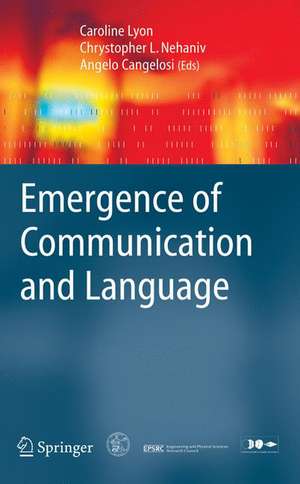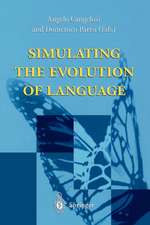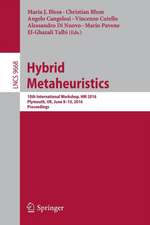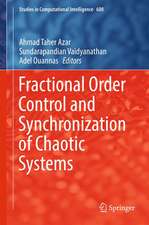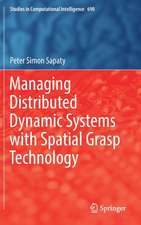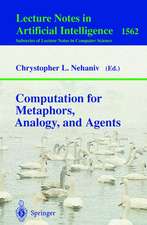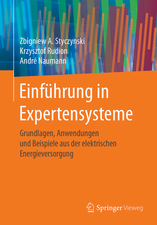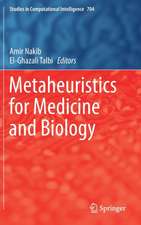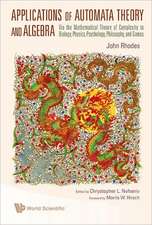Emergence of Communication and Language
Editat de Caroline Lyon, Chrystopher L. Nehaniv, Angelo Cangelosien Limba Engleză Hardback – 24 ian 2007
| Toate formatele și edițiile | Preț | Express |
|---|---|---|
| Paperback (1) | 994.58 lei 6-8 săpt. | |
| SPRINGER LONDON – 13 oct 2010 | 994.58 lei 6-8 săpt. | |
| Hardback (1) | 999.35 lei 6-8 săpt. | |
| SPRINGER LONDON – 24 ian 2007 | 999.35 lei 6-8 săpt. |
Preț: 999.35 lei
Preț vechi: 1249.19 lei
-20% Nou
Puncte Express: 1499
Preț estimativ în valută:
191.22€ • 199.65$ • 158.26£
191.22€ • 199.65$ • 158.26£
Carte tipărită la comandă
Livrare economică 05-19 aprilie
Preluare comenzi: 021 569.72.76
Specificații
ISBN-13: 9781846284915
ISBN-10: 1846284910
Pagini: 452
Ilustrații: XI, 438 p. 89 illus.
Dimensiuni: 155 x 235 x 27 mm
Greutate: 0.76 kg
Ediția:2007
Editura: SPRINGER LONDON
Colecția Springer
Locul publicării:London, United Kingdom
ISBN-10: 1846284910
Pagini: 452
Ilustrații: XI, 438 p. 89 illus.
Dimensiuni: 155 x 235 x 27 mm
Greutate: 0.76 kg
Ediția:2007
Editura: SPRINGER LONDON
Colecția Springer
Locul publicării:London, United Kingdom
Public țintă
ResearchCuprins
Empirical Investigations on Human Language.- Evolving Meaning: The Roles of Kin Selection, Allomothering and Paternal Care in Language Evolution.- ‘Needs only’ Analysis in Linguistic Ontogeny and Phylogeny.- Clues from Information Theory Indicating a Phased Emergence of Grammar.- Emergence of a Communication System: International Sign.- Distributed Language: Biomechanics, Functions, and the Origins of Talk.- Synthesis of Communication and Language in Artificial Systems.- The Recruitment Theory of Language Origins.- In silico Evolutionary Developmental Neurobiology and the Origin of Natural Language.- Communication in Natural and Artificial Organisms: Experiments in Evolutionary Robotics.- From Vocal Replication to Shared Combinatorial Speech Codes: A Small Step for Evolution, A Big Step for Language.- Learning and Transition of Symbols: Towards a Dynamical Model of a Symbolic Individual.- Language Change among ‘Memoryless Learners’ Simulated in Language Dynamics Equations.- The Evolution of Meaning-Space Structure through Iterated Learning.- The Emergence of Language: How to Simulate It.- Lexical Acquisition with and without Metacommunication.- Agent Based Modelling of Communication Costs: Why Information Can Be Free.- Language Change and the Inference of Meaning.- Language, Perceptual Categories and their Interaction: Insights from Computational Modelling.- Insights from Animal Communication.- Emergence of Linguistic Communication: Studies on Grey Parrots.- A Possible Role for Selective Masking in the Evolution of Complex, Learned Communication Systems.- The Natural History of Human Language: Bridging the Gaps without Magic.- Neural Substrates for String-Context Mutual Segmentation: A Path to Human Language.
Textul de pe ultima copertă
Old questions on the origins of language and communication are illuminated here in new, state-of-the-art research.
This volume brings together studies from diverse disciplines, showing how they can inform and stimulate each other. It includes work in linguistics, psychology, neuroscience, anthropology and computer science. New empirical work is reported on both human and animal communication, using some novel techniques that have only recently become viable.
A principal theme is the importance of studies involving artificial agents, their contribution to the body of knowledge on the emergence of communication and language, and the role of simulations in exploring some of the most significant issues. A number of different synthetic systems are described, demonstrating how communication can emerge in natural and artificial organisms. Theories on the origins of language are supported by computational and robotic experiments.
Worldwide contributors to this volume include some of the most influential figures in the field, delivering essential reading for researchers and graduates in the area, as well as providing fascinating insights for a wider readership.
Caroline Lyon is a Senior Lecturer in Computer Science at the University of Hertfordshire. Her research and publications include work on the evolution of language, speech recognition, applications of neural networks and textual analysis. Chrystopher L. Nehaniv is Research Professor of Mathematical and Evolutionary Computer Science at the University of Hertfordshire and Director of the U.K. Engineering and Physical Sciences Research Council Network on Evolvability in Biological and Software Systems. Angelo Cangelosi is Professor in Artificial Intelligence and Cognition at the University of Plymouth. He is the editor of Simulating the Evolution of Language (Springer, 2002).
This volume brings together studies from diverse disciplines, showing how they can inform and stimulate each other. It includes work in linguistics, psychology, neuroscience, anthropology and computer science. New empirical work is reported on both human and animal communication, using some novel techniques that have only recently become viable.
A principal theme is the importance of studies involving artificial agents, their contribution to the body of knowledge on the emergence of communication and language, and the role of simulations in exploring some of the most significant issues. A number of different synthetic systems are described, demonstrating how communication can emerge in natural and artificial organisms. Theories on the origins of language are supported by computational and robotic experiments.
Worldwide contributors to this volume include some of the most influential figures in the field, delivering essential reading for researchers and graduates in the area, as well as providing fascinating insights for a wider readership.
Caroline Lyon is a Senior Lecturer in Computer Science at the University of Hertfordshire. Her research and publications include work on the evolution of language, speech recognition, applications of neural networks and textual analysis. Chrystopher L. Nehaniv is Research Professor of Mathematical and Evolutionary Computer Science at the University of Hertfordshire and Director of the U.K. Engineering and Physical Sciences Research Council Network on Evolvability in Biological and Software Systems. Angelo Cangelosi is Professor in Artificial Intelligence and Cognition at the University of Plymouth. He is the editor of Simulating the Evolution of Language (Springer, 2002).
Caracteristici
State-of-the-art research in the field of emergence and evolution of linguistic communication Gives novel empirical approaches Supplies new insights from non-human communication Contains the results of collaboration between linguists, biologists, psychologists, roboticists, computer scientists, cognitive scientists and mathematicians Contributions are accessible to a broad spectrum of readers in this multi-disciplinary field Includes supplementary material: sn.pub/extras
